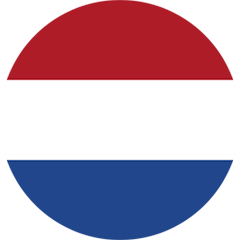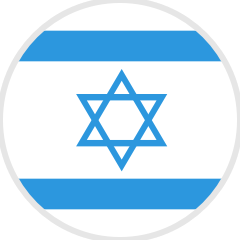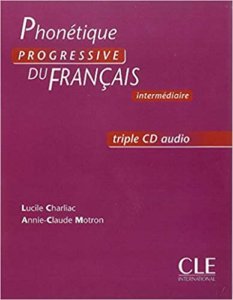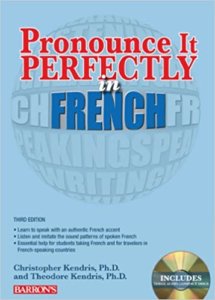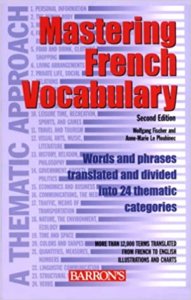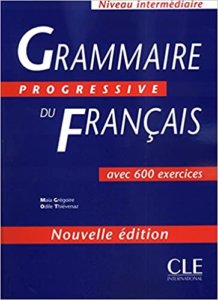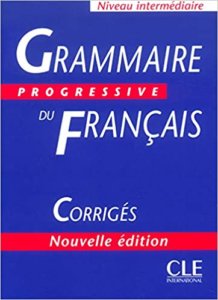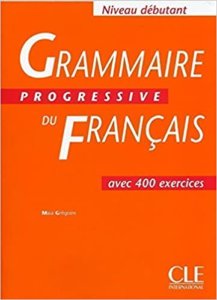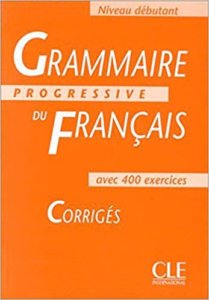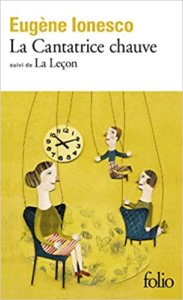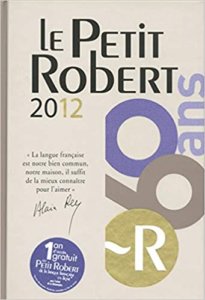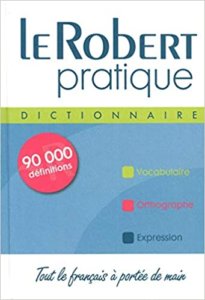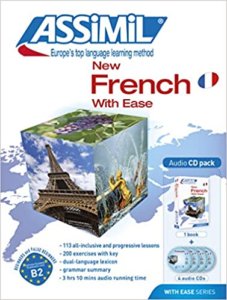The Best Way To Learn French – 11 Simple and Effective Tips
Updated January 24, 2024
Bonjour! Are you searching for the best way to learn French fast? You’ve found it! This article will tell you how to learn French effectively with 11 expert tips.
What’s the best way to learn French to fluency?
So you want to find the best way to learn French, but you’re not sure what that is. Maybe this is your first time learning a new language, or maybe you’ve tried before with little success. Whatever the case, don’t feel intimidated by the prospect of learning a foreign language.
It’s definitely not an easy task. However, the rewards you’ll reap at the end – and during your journey – will be more than worth it. Besides, it’s all about having the right learning tools and methods.
Are you ready to discover the best way to learn French? You can jump straight to the 11 pro tips here or read along for some extra information on learning this beautiful Romance language.
Before we go on, we’ve one more piece of advice. If you’re looking for a proven method to learn French fast, download the Fluent Forever app and sign up for our Live Coaching program today.
How long does it take to learn French?
Best way to learn French – 11 fast and effective tips
- Find your reason for starting
- Be consistent and commit
- Get comfortable with mistakes
- Don’t forget to review
- Learn how French sounds
- Use flashcards to learn French vocabulary
- Try French textbooks to master French grammar
- Sign up for an intensive course
- Practice with native speakers
- Consume French media
- Consider full (or partial) immersion
The Fluent Forever method: the best way to learn French

Learn French and go to Paris! Photo by Samuel Walker from Pexels
Why learn French?
The best way to learn French is to motivate yourself with the wonderful perks you’ll enjoy by learning the language.
For starters, French is an incredibly global and widespread language. Boasting 300 million speakers, French is the fifth most spoken language in the world. It’s also the official language of 32 countries and governments. And this European language is the second most taught foreign tongue worldwide, English being the first. So rest assured that you’re looking at a relevant language.
Numbers aside, there are plenty of other reasons to learn French.
Culture – France’s contribution to cooking, theater, fashion, literature, architecture, dance, and cinema is indisputable. France is one of the most prolific producers of international films. Also, French is the language of authors like Victor Hugo, Jean-Paul Sartre, and Marcel Proust. Learning French lets you enjoy these cultural exports in their original, unrestricted language.
Tourism & travel – Knowing French allows you to travel more comfortably to any of the many French-speaking countries. And because it’s such a widespread language, traveling in general will become easier. So why not learn French to travel confidently to the vibrant streets of Paris and Brussels, or the sun-kissed landscapes of the Seychelles and Madagascar?
Professional development – Acquiring French gives you a better standing in national and international job markets. Knowledge of a second language is a huge advantage when it comes to looking for and securing a job, especially with a global language like French! Plus, French opens the door to the possibility of working and living abroad in those countries where it’s officially spoken.
Is French hard to learn?
In short, no. French is generally not a hard language to learn for native English speakers. To begin with, it uses the same Latin alphabet as English. That means you won’t have to struggle with an entirely new writing system as you would with Chinese, Japanese, and Russian.
At the same time, English is linguistically influenced by Latin and French. Consequently, there are quite a few words in French that you might already know. For example, bleu, porc, and calendrier mean “blue,” “pork,” and “calendar.” These words are called cognates, or similar sounding words in different languages that have the same meaning.
That being said, French does have some tricky bits. For instance, it contains quite a few new sounds that English speakers are not familiar with. As a result, pronunciation might be a bit complicated at first. There are also false cognates, or faux amis (false friends). For example, jolie, journée, and coin don’t mean “jolly,” “journey,” or “coin,” but “pretty,” “day,” and “corner.”
Having said this, the best way to learn French – or any other language – is to keep in mind the difficult bits and use the right method to overcome them.
The Fluent Forever app uses personalized flashcards with a patented, spaced repetition system (SRS) algorithm that provides the most efficient way to learn vocabulary for longer retention. The software includes cognates and false cognates. It also has hundreds of pronunciation tests that teach you the sounds of the French language from the get-go.
Want to find out more about what makes learning a language difficult? Here’s our article on 8 Common Challenges that Make Language Learning Hard and How to Solve Them.
How long does it take to learn French?
According to the School of Language Studies of the Foreign Service Institute (FSI), it takes 30 weeks, or 600–750 hours, of dedicated study hours to learn French. The organization, which is responsible for training US diplomats, rates languages in terms of increasing difficulty for native English speakers, with category 1 showcasing the easiest languages to learn. The FSI system lists French as a category 1 language.
It’s important to note that this system is based on the institute’s teaching methods and resources. It doesn’t take into account elements like motivation, access to other quality learning resources, and languages spoken by the learner besides English.
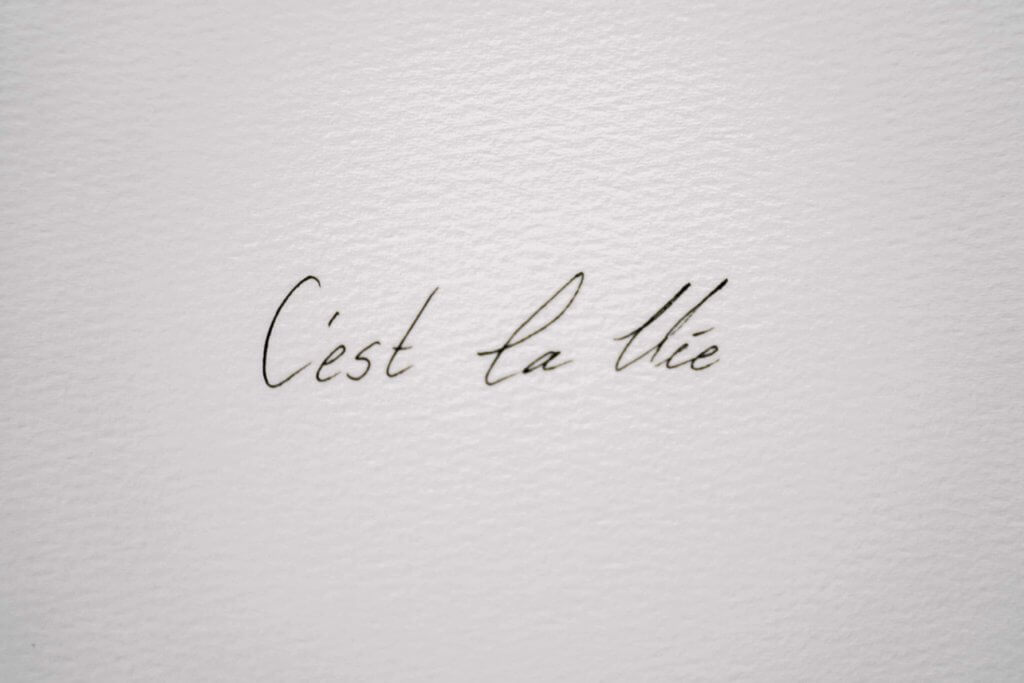
Life’s too short not to learn a new language! Photo by Ana Tarazevich from Pexels
The best way to learn French – 11 fast and effective tips
Develop good learning habits
The No. 1 way to learn French or any other target language successfully is to develop good learning habits. The first few tips in this list will help you achieve that.
1. Find your reason for starting your journey
Starting to learn a new language without an end goal is like driving without a destination in mind. It might be fun at first, but it gets boring if you don’t arrive anywhere after a while.
Having a personal reason to start learning can keep you motivated throughout the process. So, to begin with, try and find what’s yours. Here’s a list of reasons why people learn French:
- Connecting better with friends, family, colleagues, and French-speaking communities
- Improving one’s chances of working and living abroad in French-speaking countries like France or Belgium
- Making the prospect of moving and living in a francophone country feel less daunting
- Studying abroad in a vibrant city like Paris or Brussels
Besides boosting your motivation and giving you a concrete goal to reach, finding your reason to learn French will help you establish specific study methods, choose the right resources, and work towards clear milestones.
2. Be consistent and commit
The best way to learn French involves a solid commitment to your study sessions. To develop a good learning habit, you need to make sitting down and putting in the work a consistent part of your schedule. Every minute counts.
Naturally, the number of hours you spend studying French will affect how quickly you learn. But remember, consistency of quality study time trumps long but inconsistent sessions. So don’t feel bad if your schedule only allows 20 minutes of study per day – any amount of time works, so long as you stick to it and remain fully focused.
We’ve revealed these handy time-management tools for language learners to help you get quality, hyper-focused studying done.
3. Get comfortable with mistakes
The fear of butchering a word’s pronunciation, messing up a conjugation, or forgetting your vocabulary especially when speaking can make mastering French unnecessarily harder than it is. It can even stop some from starting their language learning journey.
However, the truth is no one cares as much as you do about making mistakes. In reality, native speakers will more often than not be empathetic towards your errors. If anything, they’ll be happy to help out.
Make peace with that awkward phase of learning a new language. Grammar will be fumbled, and vocabulary will be embarrassingly mixed up – it’s normal. Don’t let stumbling a few times stop you from walking and enjoying the journey.
Lastly, starting to speak as soon as possible is one of the best ways to learn French, especially if it’s with native speakers. Fluent Forever’s Live Coaching program pairs you up with your very own language coach who’s also a native speaker.
Get ready to sign up for your personalized Coaching sessions right here.
4. Don’t forget to review!
Our final tip in this first section focuses on the importance of reviewing. At first, you might be keen on learning every single new French-related thing that comes your way, and that’s great! But remember that going over things you’ve already learned is just as important.
At times, the rush of learning a new language might lead you to forget about subjects and elements already covered as you focus on new ones. So, remember to include frequent review lessons when you sit down and study to make sure nothing is lost.
Pick up the basics
The best way to learn French as effectively as possible from the very beginning is to master the language basics. After all, a good foundation will let you pick up the rest more easily.
5. Learn how French sounds
Nailing proper pronunciation is one of the trickiest bits in French. Often, people choose to focus on grammar and vocabulary without audio support. This is a problem, as there are many silent letters and liaisons in the language that basically make written and spoken French two different things.
In other words, often the way a word is spelled does not dictate how you pronounce it. That’s why you’ve probably mispronounced croissant your whole life.
So, what’s the best way to learn French pronunciation? Audio is the answer. Whatever resource you use to learn French grammar, vocabulary, and sentence structure, make sure you complement it with its audio pairing.
We have some great resources on French pronunciation on our website. Also, make sure to check out the resources section in this article.
6. Use flashcards to learn French vocabulary
The best way to learn French vocabulary is to skip direct translations and actually think in French. You’re better off learning with images, which will double your learning speed and ability to recall and retain words. By making your own flashcards with pictures or drawings, you create a personalized learning experience that makes picking up new words easier and faster.
At the same time, you shouldn’t learn every word you come across. Rather, you should focus on frequently used French words. By using frequency lists – compilations of the nouns, verbs, and adjectives commonly used in a language – you acquire vocabulary that you actually hear in conversations, read in newspapers, and hear in French news.
Here’s a handy list of 625 French words you can start with. This compilation of frequently used vocabulary we’ve created is available in 15 languages, including French! All you have to do is click on the drop-down menu and choose the option English to French.
Did you know that the Fluent Forever app automates the flashcard creation process so you can focus on reviewing? Additionally, the SRS algorithm creates personalized review sessions based on your past performance. In other words, our app helps you focus where you need to.
Read more about our amazing language learning method here.
7. Try French textbooks to master French grammar
Working through language textbook exercises might not be the most popular way to learn grammar, but one can’t deny its usefulness. By perfecting your writing skills this way, you’ll constantly review all of the grammar you’ve been learning so far.
However, the only way this will be useful is if you can check your answers. Try to get a workbook with an answer key. You can check out some of our French grammar recommendations in the resources section below.
8. Sign up for an intensive course
The best way to learn French doesn’t necessarily entail a solo endeavor. Some learners aren’t too keen on self-study and prefer learning with other people. Plus, sometimes it can be difficult to create motivation on your own.
Taking an intensive French course can be a great option to learn with others. You’ll have a certified professional leading the way while being surrounded by other learners you can lean on for support and motivation.
Although there are offline full-immersion courses in France, there are also less costly online options. In either case, if you choose to take an intensive course, make sure not to skip any review sessions outside of your class hours.
Surround yourself with French
Without a doubt, one of the best ways to learn French is to surround yourself with French as much as possible. After all, that’s how French babies do it – and they speak the language rather well. What you want to do is to speak, hear, and read in French constantly. This section will tell you how!
9. Practice with native speakers
A surefire way to learn French by speaking it is to practice with native speakers. Native French speakers are an invaluable resource for learners as they can provide feedback and teach accurate pronunciation.
1-on-1 sessions with native speakers help build your confidence when speaking and improve your conversational skills. This will make the prospect of traveling abroad to a French-speaking country less daunting.
There are lots of places where you can find native speakers to practice with, both offline and online. First, you can try finding a language exchange partner at your local cafe or community center. You’d be surprised at how many people want to learn or improve their English in exchange for conversing in their native French.
Second, online options are widely available. MyLanguageExchange and MeetUp are two great options you can check out.
Finally, we can’t recommend our Live Coaching program enough as a way to connect with native speakers. Our language coaches are both French native speakers and certified in language teaching, so you’ll have the bonus of practicing with someone who knows a thing or two about learning a language. Additionally, our coaches play the additional role of keeping you accountable throughout the program, all while creating sessions about things you want to talk about – like your hobbies, passions, and interests.
To get started, read our article on the benefits of language coaching, and make sure you check out our Live Coaching program.
10. Consume French media
After you have some French vocabulary and grammar under your belt, introduce French media resources to your learning routine: think movies, series, books, podcasts, music, you name it!
When it comes to movies and series, you might want to start with English subtitles. However, as soon as you can, move on to French subtitles. Here’s a long list of the 100 best French movies for you to dive into.
Although movies are useful, TV series give you more time to understand the context, characters, and dialogue. For beginner and intermediate learners of French, they might be a better medium to start with.
See what gets you inspired in this list of French series on Netflix. Also, don’t miss the additional French media recommendations in our learning resources section below.
11. Consider full (or partial) immersion
Without a doubt, the best way to learn French for good is to physically put yourself in a place where you’re forced to think, hear, and speak French 24/7. Traveling to a French-speaking country and staying there for a while can be intense, but it’s definitely the most effective way to master the language.
However, not everyone can simply pause their life and go to Paris for six months. If that’s your case, consider mimicking full immersion with everyday activities. Here are some practical ideas you can do in your day-to-day:
- Create flashcards for objects around your house using post-its
- Try following cooking recipes in French
- Change the language settings in your electronics to French
- Volunteer or work in a place frequented by French-speaking people
- Talk to yourself in French (it really works!)
Learning resources for French
For the best way to learn French, you’re going to need a way to learn correct pronunciation, a frequency dictionary to form your base vocabulary, and a good grammar book. You’ll also benefit from a thematic vocabulary book for specialized vocabulary, and maybe a book or two, once you learn your first 1,000 words.
Make sure you read our blog articles for top advice and tips in language learning, then check out some of the following recommended resources (pictures are links).
Pronunciation
First off, get a feel for how pronunciation works in English. The video tutorials here should help. Once you understand that, start working on French. Check out our French sounds video, and then try out these resources:
We recommend the Phonetique Progressive Du Francais series from CLE International. Be warned, it’s French only (which can be nice). Just get the Intermediate version; it’s phonetics, and you might as well do it right and do it completely if you’re going to buy a book. Highly recommended!
If you want something in English, the Pronounce It Perfectly series comes with audio CDs and all the pronunciation rules, and I’ve yet to see one that wasn’t excellent.
There are also some Anki flashcards for French to improve your pronunciation, such as the French alphabet, French IPA, French minimal pairs, and other useful goodies.
If you want to jump to free internet resources, you have a few options. Check out Wikipedia’s French Phonology page or the Foreign Service Institute’s French Phonology course. You can also find recordings for fine-tuning work here.
Base vocabulary
Building on our French base vocabulary list we mentioned earlier, we recommend translating the words using the short dictionaries at the end of a Lonely Planet phrasebook: they’re cheap, short, and they give you good, standard translations for your words (just ignore the ridiculous pronunciation guides). Later, when you’re ready for sentences, you can go back to your phrasebook and grab some. After that, try some of these resources:
Frequency dictionary
The Routledge Frequency Dictionary series is excellent, with example uses and everything. Get this at the beginning to direct your vocabulary work!
Another great dictionary is this one. It has links to Google Images and conjugation links. The best free internet-based list we’ve found is here.
Thematic word list
The Mastering Vocabulary series is a wonderful set of books that contain core vocab for just about any field/topic you can think of. They’re great for adding to your vocab once you get your first 1,000 or 2,000 words from a frequency list.
You can also access French Anki decks to boost up your French vocabulary, like the French alphabet, French numbers, French Top 2000 Words Flashcards, and many more.
There are also a neat set of sentences online which are ranked based on how frequently the words within those sentences show up within the language. We suggest that you finish the 625 words featured in your app, and then create custom flashcards to learn any new words you come across. Remember that your app makes creating personalized flashcards quick and easy!
Grammar books
We recommend Grammaire Progressive Du Francais (Intermediate Level) with an answer book at Middlebury. They’re wonderful and completely in French, with clear explanations and examples for the whole range of French grammar. They’re just great books.
Here are links to the beginner books:
And here is a link to Schaum’s grammar book, which I mention in Fluent Forever:
Other resources
You can read anything you enjoy. We’re big fans of the Harry Potter series in translation, especially if you can find an audiobook version to listen to at the same time as reading.
In terms of French literature, La Cantatrice Chauve by Eugene Ionesco is hilarious.
Movies
The TV series 24 has been dubbed into French and makes for some addictive TV! Shut off subtitles, and it makes for 24 hours (well, more like 18 hours) of solid French listening practice.
You can find a list of great French movies on Netflix here. If you’d like to have French scripts handy for your TV watching, check out hypnoweb.net. They have scripts for just about everything.
French IPA
There’s a useful French IPA deck for Anki that helps you get used to all the unique IPA and the sounds of French, according to their letter combinations in French words. A reader submitted a guide to French IPA which you can download here. And here is an IPA converter another reader shared with us.
Monolingual dictionaries
Our favorite online monolingual dictionary is actually Wiktionnaire (many other languages’ Wiktionaries are pretty incomplete).
In terms of a print source, the gold standard is Le Petit Robert or its little brother, Le Robert Pratique (which used to be called Le Robert Micro).
Linguee is a lovely dictionary resource, in that it shows you multiple example sentences for each word and tells you about each word’s relative frequency in the language.
Assimil
The Assimil series is a sort of special language learning resource that we discuss in a blog post here. Here’s the beginner French version with CDs.
Dictionarist
Dictionarist provides translations, example sentences, conjugations, and synonyms for a number of languages including French.
The Fluent Forever method: the best way to learn French
The best way to learn French is to download the Fluent Forever app and join its popular Live Coaching program.
With Fluent Forever, you learn the basics of French following our 4-step, scientifically backed method:
Step 1 – The app rewires your ears to understand French sounds with 1,500+ pronunciation tests.
Step 2 – You learn essential French vocabulary through the incredible power of custom flashcards and our patented spaced repetition system (SRS) algorithm. The app allows you to create simple and effective flashcards with images, videos, or drawings to help you learn and retain words longer.
Additionally, our SRS algorithm creates review sessions based on your performance, which lets you learn words faster!
Step 3 – After learning some basic French vocab, you learn grammar by building sentences with words you already know. Plus, you can create your own sentences using words, phrases, or expressions you find useful.
Step 4 – To consolidate all of the above, it’s time to work with your very own language coach. Our coaches are 100% native speakers trained in our learning system. What’s more, your sessions are fully customizable to your interests and fluency goals.
So what are you waiting for? Download the Fluent Forever app and join the Live Coaching program to get to fluency fast.
Disclaimer: As an Amazon Associate, Fluent Forever earns from qualifying purchases.
[shareaholic app="share_buttons" id="28313910"]












